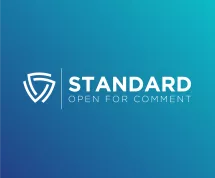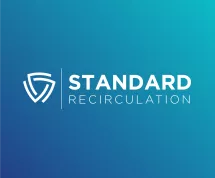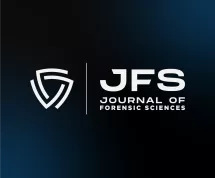Search
Explore content from JFS, ASB, the AAFS Newsfeed, and other content using the search bar or filters.
Forensic Anthropology: Terms and Definitions

Standard for Scene Response: Initial Response by Scene Investigators

Standard for Reports and Testimony inForensic Toxicology

Standard for the Documentation and Processing of Shooting Scenes

Best Practice Recommendation for Determining What Scene and Death Locations a Medicolegal...

Best Practice Recommendations for Internal Validation of Human Short Tandem Repeat...

Standard for Internal Validation of Human Short Tandem Repeat Profiling on Capillary...

Standard for Familial DNA Searching

Seasonal decomposition and the effect of clothing in Cape Town, South Africa
Unidentified, unclaimed human remains are a substantial problem in many developing nations, including South Africa. Most forensic cases in Cape Town involve clothed individuals found in thicketed environments. To assist in local medico‐legal death investigations, we gathered taph...
Issue Information
Examining the effects of 3D printed projectiles on firearm identification
In recent years, 3D printers have become more affordable for the average consumer to purchase, and new printers require less user input, making the process accessible to anyone who can download files online. Due to these factors, these printers are being used to manufacture firea...
The dermestid beetle (Dermestes maculatus) as a biotic taphonomic agent: Further...
The dermestid beetle (Dermestes maculatus) has become renowned in the laboratory as an aid to skeletonization of remains. However, little attention has been paid to the potential effects these insects can have on hard tissues and whether their traces may be mistaken for trauma or...
Lab‐based evaluation of first‐ and second‐generation gamma‐hydroxybutyrate test strips and...
Gamma hydroxybutyrate (GHB) has been used as a drug to facilitate sexual assault. Commercial testing devices are available for bars and patrons to test drinks that may have been spiked with GHB. In this study, six first‐generation GHB test devices were evaluated for the detection...
FSF Bashkinski Grant – July 31 Deadline Reminder
From theory to practice: Protocol adaptations for swift victim identification in the...
The October 7, 2023, massacre in Israel posed unprecedented challenges for disaster victim identification (DVI), requiring adaptations to international forensic protocols to address extreme conditions, including active conflict, fragmented remains, and cultural and religious cons...
Characteristics and toxicology of adult deaths due to quetiapine toxicity in Australia,...
Quetiapine is an atypical antipsychotic that has been associated with both intentional and unintentional deaths. We aimed to determine, stratified by intentionality: (1) The characteristics and circumstances of adult deaths attributed solely to quetiapine toxicity in Australia, 2...
Digital otoscopic examination of tympanic membranes in confirmed suicidal hanging deaths:...
A crucial factor in cases of apparent hanging deaths is establishing whether an antemortem hanging or postmortem suspension has occurred. Hanging diagnosis relies upon the history, scene investigation, and gross examination of the body including the ligature furrow and possible r...
ASB Newsletter – June 27, 2025
